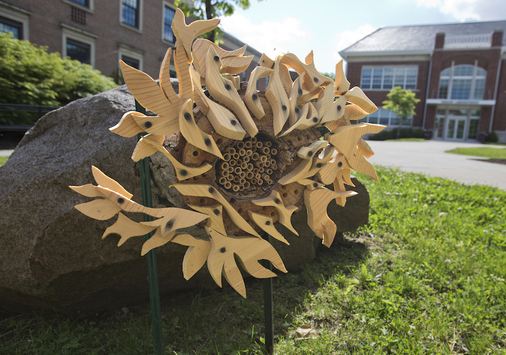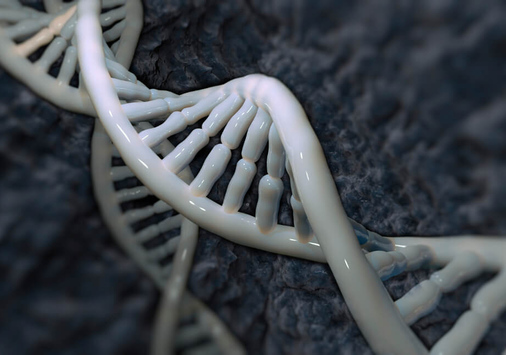Faculty Research Interests
Adipoimmunology--Modulation of the immune response by adipokines, hormones made by adipose tissue
I study how to reduce adipose tissue (AT)-mediated inflammation through nutritional interventions. I am interested in elucidating how omega-3 fatty acids decrease AT-produced inflammatory molecules and if this decrease is mediated through the adipocytes or the macrophages residing in AT.
Genomics; Bioinformatics; Behavior; Evolution; Marine Biology; Transposable Elements, Eusociality
My research focuses on evolution, genomics, and animal behavior.
Evolution of species in Adder’s Tongue ferns
As a plant systematist, I am interested in studying how plants evolve, and how understanding their evolutionary history can help us classify them in more meaningful ways. My research focuses on primitive ferns of the family Ophioglossaceae (adder's tongue ferns), and I use both whole organism and molecular methods. I employ DNA sequencing to help understand evolutionary relationships among species, and a PCR based technique (ISSR markers) to evaluate genetic variation within and among populations of closely related species.
Vacuolar H+-ATPase assembly and function
Role of acid pumps in cancer metastasis using human breast cancer cells as a model system and assembly of these pumps using S. cerevisiae as a model system.
Amphibian ecology and conservation
My research focuses on understanding the habitat requirements of pond-breeding amphibians, as well as on expanding the ways in which effects of habitat loss can be measured and monitored. Wetlands themselves have gained some protection in recent years, however many wetland organisms, including amphibians, rely heavily on the terrestrial upland. It is crucial to the protection of native wetland species that we understand both the quantity and quality of terrestrial habitat required to support a healthy population. Many pond-breeding amphibians, particularly Ambystoma species, can live for a decade or more, and this long life span can make traditional population studies challenging. Developing alternative techniques that can supplement, or in some time sensitive cases, replace traditional population studies may aid in the relatively rapid identification of at-risk populations, as well as enable the implementation of more effective management strategies. To that end, I am currently planning several experiments including a long-term population study of a pond-breeding salamander (A. maculatum) and several studies of potential rapid assessment techniques for identifying populations at risk of severe decline or extinction at local ponds.
Gender, race, nation, and sexuality in public health discourses
She is an associate professor in the Women’s Studies Program and the Department of Biology at Denison University. Her areas of research include critical race and gender studies, feminist studies of science and health, and media studies. In particular, she is interested in the formations of gender, race, nation, and sexuality in public health discourses. With respect to feminist science studies, she works with feminist science methodologies, laboratory practices, and activisms.
The stability of plant-insect mutualisms
I am broadly interested in the interactions among plants and their environment and visitors. In particular, I investigate how mutualisms such as plant-pollinator systems can withstand interruptions by other insects. I do this in two main study systems, with opportunities to work both in the greenhouse and in field conditions.
ecology, zooplankton, aquatic, fish, small pond, invertebrate, turtle, population dynamics, community ecology
I study the ecology of animal populations inhabiting in small ponds (< 2 ha). My study organisms include native sunfish, non-native mosquitofish, their macroinvertebrate and zooplankton prey, and other animals (i.e., crayfish, amphibians, turtles).
Neuroscience, neurobiology, ethology, physiology, behavior, xenopus laevis, cephalopod, chemosensation, smell, taste
I am interested in understanding how animals obtain the information they need to select appropriate behaviors. I have approached similar questions in very different species, from frogs to octopuses, using a wide variety of approaches and techniques.
Evolution of developmental mechanisms using a marine invertebrate, the sea urchin, as a model system.
My interdisciplinary research is focused on understanding the molecular basis of phenotypic diversity as well as the impact of environmental change on the eggs, embryos, and larvae of aquatic invertebrates.
Population and Community Ecologist
My research examines how the environment influences populations and communities, particularly of amphibians and reptiles. I am especially interested in how human-induced changes in the environment alter community-level interactions.
Molecular Geneticist
Molecular Geneticist — Investigations into epigenetic responses to DNA damage, using the yeast Saccharomyces cerevisiae as a model system.
Insect behavior and ecology
My research focuses on insect behavior and ecology. My lab consists of two aims, each exploring a different level of biological organization. My summer research mainly focuses on the broader topic of insect community ecology. I’m interested in how habitat fragmentation effects biodiversity. Specifically, if natural areas can act as a refuge for insects in anthropogenic habitats and the consequences of fragment size and isolation on insect biodiversity. At the organismal level, I’m interested in the drivers of mate choice and sexual selection. I use multiple insect models to understand the impact of individual variability on mating decisions. Specifically, my aim is to collect and rear Culex spp. mosquitoes to determine the influence of relatedness on fecundity and female mate choice. During the fall term I also run acoustic communication experiments as a continuation of my doctoral research.
Pathogenesis of Burkholderia cenocepacia
My goal is to find more effective ways to treat B. cenocepacia lung infections in cystic fibrosis patients. I use infection models to study how the bacterium Burkholderia cenocepacia causes disease and to use bacteriophages to block disease.
Tumor suppression and growth factor signaling
I am interested in the roles that microRNAs play in the development of cancer. My research focuses on identifying microRNA targets and studying the effects of altering these pathways on cellular behavior.



























